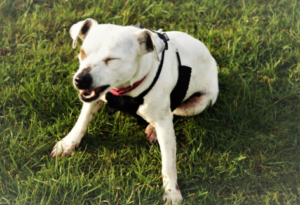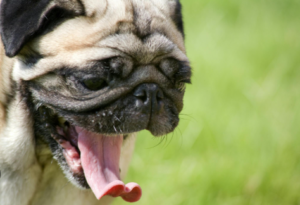As a pet owner, few things are as concerning as hearing your furry friend sneeze repeatedly. While the occasional sneeze is normal, frequent sneezing can be a sign of an underlying issue. Understanding why is your pet sneezing is crucial to ensuring their health and happiness. In this comprehensive guide, we’ll explore the common causes of sneezing in pets, when to worry, and what you can do to help your beloved companion.
Is Sneezing Normal for Pets?

Just like humans, pets sneeze from time to time. Sneezing is a natural reflex that helps clear the nasal passages of irritants like dust, pollen, or even a stray whisker. However, if your pet is sneezing excessively or showing other symptoms, it’s time to investigate further.
You may love this one: How to Strengthen an Old Dog’s Hind Legs
Common Causes of Sneezing in Pets
1. Environmental Irritants
Pets are curious creatures, and their noses often come into contact with various irritants. Common culprits include:
- Dust or dirt
- Pollen or grass
- Perfumes or cleaning products
- Smoke or strong odors
If your pet sneezes after exploring a dusty area or being exposed to a new scent, environmental irritants are likely the cause.
2. Allergies
Yes, pets can have allergies too! Allergic reactions in pets often manifest as sneezing, itching, or watery eyes. Common allergens include:
- Pollen
- Mold
- Dust mites
- Certain foods
If your pet’s sneezing is seasonal or occurs after eating specific foods, allergies could be to blame.
3. Infections
Bacterial, viral, or fungal infections can lead to sneezing in pets. Upper respiratory infections are particularly common in cats and dogs. Symptoms may include:
- Nasal discharge (clear, yellow, or green)
- Coughing
- Lethargy
- Loss of appetite
Infections like kennel cough (in dogs) or feline herpesvirus (in cats) are highly contagious and require veterinary attention.
4. Foreign Objects
Pets, especially dogs, love to sniff and explore. Sometimes, small objects like grass seeds, dirt, or even toys can get lodged in their nasal passages, causing irritation and sneezing. If your pet is pawing at their nose or sneezing violently, a foreign object could be the cause.
5. Dental Issues
Believe it or not, dental problems can lead to sneezing in pets. Infections or abscesses in the upper teeth can spread to the nasal cavity, causing inflammation and sneezing. Regular dental check-ups are essential to prevent this issue.
6. Nasal Mites
Nasal mites are tiny parasites that can infest your pet’s nasal passages, leading to chronic sneezing, nasal discharge, and even nosebleeds. These mites are more common in dogs but can also affect cats.
7. Tumors or Polyps
While less common, growths like nasal tumors or polyps can cause persistent sneezing, especially in older pets. These growths may also lead to difficulty breathing, nasal discharge, or facial swelling.
When Should You Worry?
While occasional sneezing is normal, certain signs indicate a more serious problem. Contact your veterinarian if your pet exhibits:
Frequent or violent sneezing
- Nasal discharge (especially if bloody or discolored)
- Difficulty breathing
- Loss of appetite or energy
- Swelling around the nose or face
How to Help Your Sneezing Pet

1. Identify and Remove Irritants
If you suspect environmental irritants are causing your pet’s sneezing, try to identify and eliminate the source. Use pet-safe cleaning products, avoid smoking near your pet, and keep them away from dusty or pollen-heavy areas.
2. Monitor for Allergies
If allergies are the culprit, your vet may recommend antihistamines or other treatments. Keeping your home clean and using air purifiers can also help reduce allergens.
3. Visit the Vet
For persistent sneezing or accompanying symptoms, a visit to the vet is essential. Your vet can perform tests to diagnose infections, nasal mites, or other underlying conditions. Treatment may include antibiotics, antifungal medications, or even surgery for severe cases.
4. Keep Your Pet Comfortable
While addressing the root cause, ensure your pet is comfortable. Keep them hydrated, provide a quiet resting space, and use a humidifier to ease nasal congestion.
Preventing Sneezing in Pets
- Prevention is always better than cure. Here are some tips to keep your pet sneeze-free:
- Regularly clean your home to reduce dust and allergens.
- Avoid exposing your pet to strong scents or smoke.
- Keep up with vaccinations to prevent respiratory infections.
- Schedule routine dental check-ups.
Monitor your pet’s outdoor activities to prevent them from sniffing harmful objects.
Fun Facts About Pet Sneezing

- Dogs Sneeze to Communicate: Did you know that dogs sometimes sneeze during play to signal that they’re just having fun and not being aggressive?
- Cats Sneeze Less Often: Cats are generally less prone to sneezing than dogs, but when they do, it’s often due to infections or allergies.
- Reverse Sneezing: Some pets experience “reverse sneezing,” which sounds like a honking noise. While alarming, it’s usually harmless and caused by throat irritation.
Final Thoughts
Sneezing in pets can range from a harmless reflex to a sign of a serious health issue. By understanding the potential causes and knowing when to seek veterinary care, you can ensure your pet stays healthy and happy. Remember, your pet relies on you to be their advocate, so don’t hesitate to consult your vet if something seems off.
If you found this article helpful, share it with fellow pet owners to spread the knowledge! And if your pet is sneezing persistently, don’t wait—schedule a vet visit today. Your furry friend will thank you!
